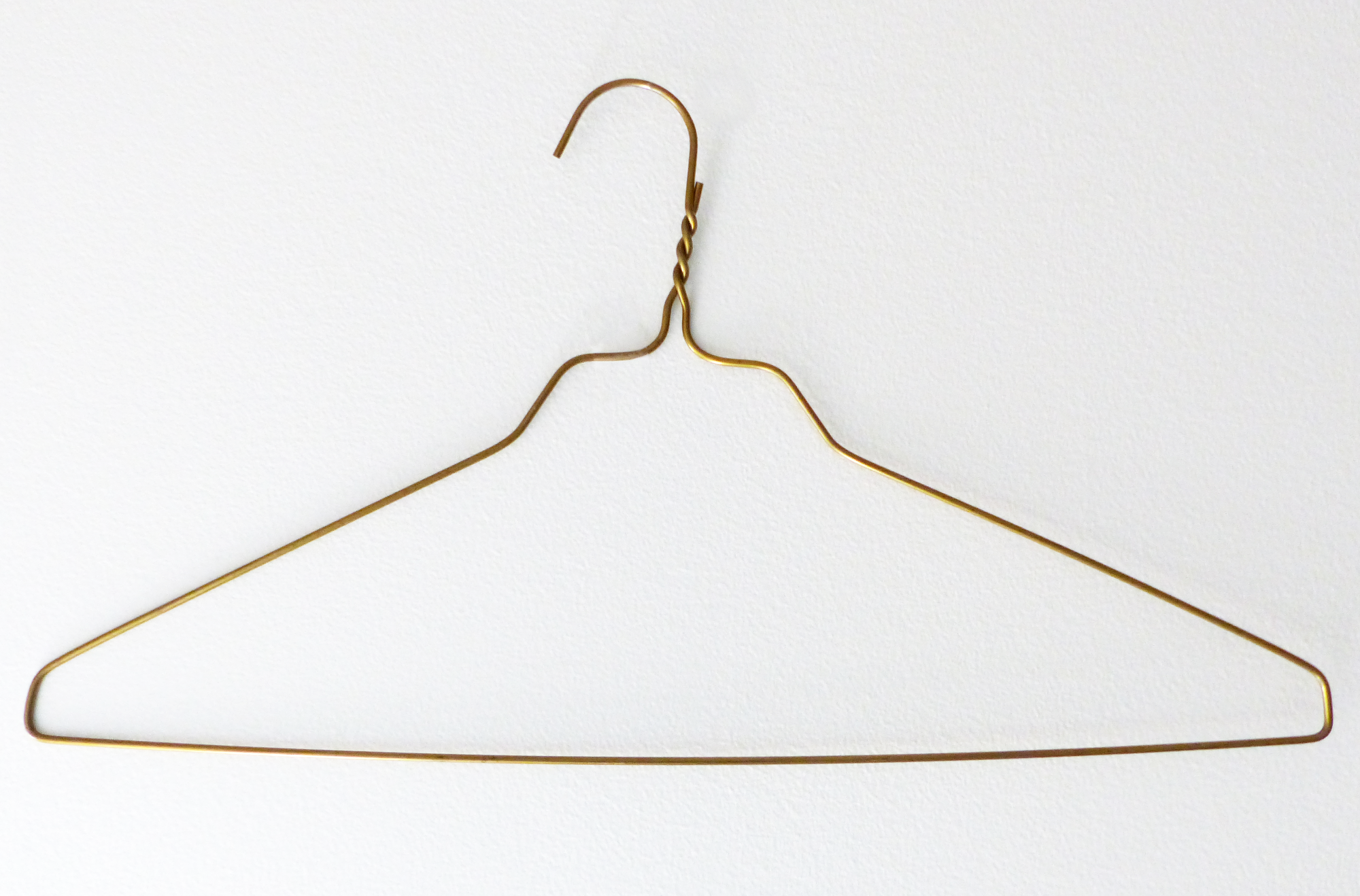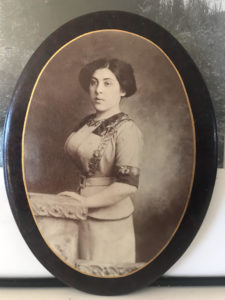
“Failed Self-Abortion With a Wire Hanger”: A Letter from a Namesake to an Ancestor
Dear Jennie,
Despite our shared name, your life and death were clarified for me only in college, when I started to develop a vocabulary for seeing the world through gender, power, class, suffering and solidarity. I began to realize that the way my family had passively glorified your story as one of dire poverty alone missed several crucial, intersecting points—your gender, the drive to control the female body, autonomy, motherhood, the value of a life, and the devastation of death and desperation. No one mentioned until recently, at least to my knowledge, that you likely struggled with depression. Me, too.

It’s easy to wonder if your death was not just death but a form of suicide, or if that categorical distinction even applies to situations like yours. “They listed the cause of death as peritonitis,” your grandson (my father) still hints with his face wide open, the supraorbital ridge of his brow lifting at the thought of that cruel, medical pseudonym for failed self-abortion with a wire hanger.
Great-grandma Jennie, state after state is criminalizing abortion after six weeks. Democrats and Republicans alike are calling these heartbeat bills, but the “detection of a fetal heartbeat” is misleading—no heart is fully formed at six weeks; what’s detected are only the cells that will later form the heart, already at work, “beating” as per their design. The bills will be challenged in the courts, in the most supreme of which conservatives hope to puncture the provisions of Roe v. Wade. That’s a Supreme Court decision that made it possible, in 1973, for me to do what you couldn’t in 1922—safely and legally have an abortion in the care of a medical doctor—regardless of where in America our family ended up. Of course, there are states where “possible” still means improbable, and entire American counties where doctors to care for bodies like mine and yours are nowhere to be found. Not that anyone in the direct line from you to me ever left New York for more than a few months.
It’s hard to say if being named after you was connected or simply co-incidental to my falling, in recent years, down the rabbit hole of feminism, women’s writing, the powerful effects of storytelling, how narratives are formed and circulated, how modern myths are fed and digested. My name is Jamie because my mom (the wife of your son Phil’s son Arnie) always wanted to name a daughter Jamie, if she ever had one. After two boys, your grandson wanted a girl and so my mom came around to the idea of having a third child. She would have been okay with two boys, the story goes, but my father wanted a girl. And so when I came true, they matched the J from Jamie to the J from Jenny and gave me your Hebrew name, really a Yiddish name (though you know that already), Shaindel. My brother Adam (number two of us three) had already taken the masculine version of your sister Anna’s name, Nechama. Shaindel, meaning beautiful. Nechama, meaning comfort.
In death you made Anna a wife and a mother. People in my time are rather unfamiliar with the practice of a widower marrying his deceased wife’s unwed sister, should she have one. Did you know, before you were gone, that you might be making that space for her? Do you think she wanted it? Regardless, she stepped in and Phil and the rest of your boys—Judgy, Alex and Dunny—continued to call her tante while she mothered them and the children she carried herself, Lazar, Teddy and Lakey. Later, after the Second World War (yes, second) Phil returned from the Philippines to meet a young widow named Reggie. He raised her small son Sherman (my dad’s half-brother) as his own. He was a good man, “part of the Greatest Generation, men the likes of which we’ll never see again,” my dad has said over and over. Phil was of an age group romanticized for rising up after the Lost Generation—a supposedly aimless lot, to which you belonged—though his loss of you and the loss of so many women like you had no bearing on the moniker “Lost.”
You’ve crossed my mind more and more over the last several years, as my body pulls me through my reproductive prime and we continue to grow closer and closer in age. You were no more than ten years older than I am now, newly twenty-five, when you faced the ultimate consequence of your systematically enforced limitations of agency, resources, care and equality. Lately now more than ever, when the possibility of death caused by unsafe abortions is raised—in classrooms, online, in everyday conversation—I bristle at the knowledge of you.
Because of you, I know the perpetual urgency of safeguarding women’s autonomy. I hear the dire importance of maintaining control over my body in my own name. I see the future of many women heading back into the past, with you, because your life and the lives of women need constant illumination, so as not to be left in the dark, forgotten before we are even gone.
Love,
Jamie
3 comments on ““Failed Self-Abortion With a Wire Hanger”: A Letter from a Namesake to an Ancestor”
Comments are closed.




That was beautiful.
I want to hear more!
Thank you for writing what I had also imagined; asking my great-grandmother, Mary about her abortion, anout her death. I have no picture of her. I know she was 35 , from Wales, lived in NY, had already had 5 children, my grandmother was 3 when she died. Only know from a death certificate recently found, I imagine my grandmother was told a.different story from the older sister who raised her….so many circumstances shape our lives. I was 18 in 1972, never imagined I would have to continue fighting for our rights. …. had an abortion in 1980, not an easy decision but no protests.outside, no worries about medical complications, or legal rights. Thanks again and may Jennie, Mary and for all the other desperate women – may their memory be a blessing.